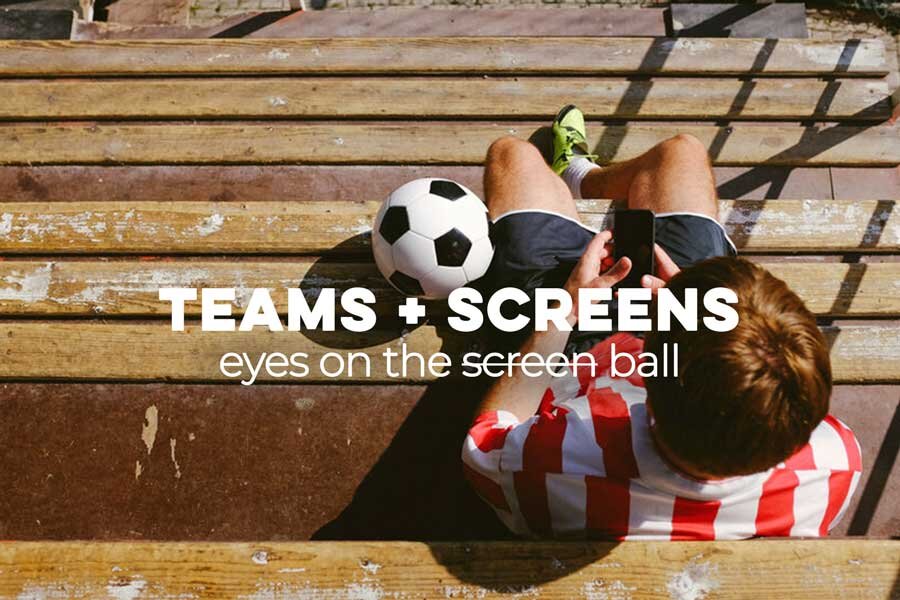


When we think of youth sports, we think of water coolers, bleacher buns, sunflower seeds, sunburns and trophies. But in recent years, a new player has shown up on the field: the smartphone. Whether a game is cancelled, a carpool needs organizing, or a camera is capturing the winning shot—in many ways, our tech truly deserves a trophy for helping families survive the logistics.
And in others, it might deserve a little time on the bench.
At START, we’ve heard from coaches and parents who are seeing a growing trend of players on the field losing focus when their tech is nearby. Tim McCoy, Executive Director of Pennsylvania West Youth Soccer Association, shared, “Kids hear the notification tone on their phone from the field during a practice or game and their desire to check it overwhelms them. They struggle to remain focused on the field because they’re so curious what is happening on their phone. To help with this distraction, some coaches have required phones be turned off during practice and games. Those coaches are reporting that kids are quitting the team because they can’t handle having their phone off for that long…can you imagine, kids quitting an activity because they are unable to go 60 or 90 minutes without their phone?”
This trend is aligned with a recent study by the Aspen Institute, which found that the number of kids ages six to 12 who play sports regularly has decreased 15% since 2008—the year Apple began to roll out the iPhone 3G. Joel Dragan, Executive Director of the Kansas State Youth Soccer Association, has witnessed the decline from the frontlines, sharing that when it comes to recruiting youngsters, “We are no longer competing against football or lacrosse for players. Our greatest competitor? Inactivity.”
As screentime awareness increases, the side effects of an inactive childhood are becoming more commonly understood; pediatricians and parents alike agree that kids need exercise to stay healthy and strong. But Dr. Tommy John III, son of the famous pitcher, points out that even for the most active and avid athletes, technology can affect their performance, triggering a suppressed immune system, reduced awareness skills, and even poor posture.
And in a world where kids are navigating the perils of social media, perhaps the greatest way technology has impacted youth sports is interfering with opportunities for healthy social and emotional development. “When they’re done right, organized sports can help kids build self-esteem, set goals, learn teamwork, and practice leadership.” (The Susan Crown Exchange.) But when we hear from Tim DeWeese, a 1st grade girls basketball coach and Director of the Johnson County Mental Health Center, that he sees players on the opposing bench huddled around an iPad—instead of cheering for their teammates, we have to wonder if they are learning that supporting roles are critically important for a winning team. And when siblings in the grandstands are absorbed in an iPad game, we might not be noticing what they are missing out on: making mudpies in the dirt with other siblings, cheering for the winning shot, and dreaming about their future role on a team.
Because the truth is, the incredible benefits of youth sports don’t only happen on the field—they happen on the bench, in the bleachers, and at the pizza party after the game. In the proud moments, and the deep heartaches. It’s why we drag our blankets out in the drizzling rain, because as adults we know that the ultimate prize—comraderie and community—is worth it. And we want our kids to know it, too.
At START, we believe smartphones are a gift, and they’re here to stay. But we’re also huge fans of device-free zones—spaces where coaches and parents decide together that for 60 or 90 minutes, players should unplug from the world and be fully present with their team. And you know what’s even better? When coaches and parents decide to join in from the bleachers, giving themselves permission to unplug. Together, we can show our kids that in sports, as in life, it’s important to keep your eye on the ball.